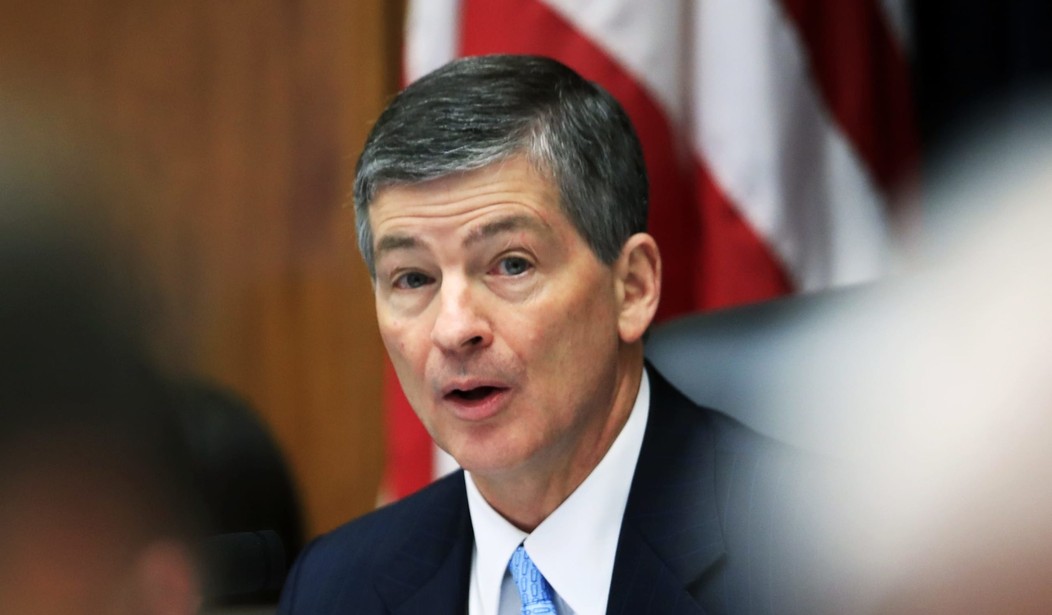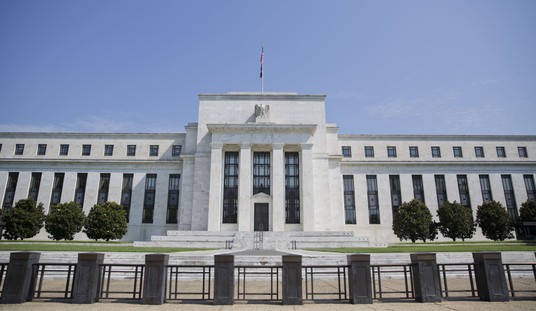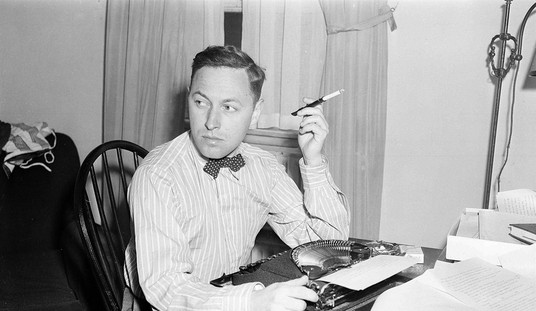This week, the House Financial Services Committee marked up and passed landmark legislation, H.R. 10, the CHOICE Act. If it can get signed into law, this bill can help small businesses, Americans who are struggling economically, and improve congressional oversight. Not bad for government work.
Rep. Jeb Hensarling (R-Texas ), chairman of the committee, introduced the bill which would right many of the wrongs committed by the Dodd-Frank Act. That law from the left has acted like a restrictor plate on the American economy. Two components of the Dodd-Frank Act, the Durbin amendment, and the establishment of the Consumer Finance Protection Board (CFPB), have been onerous obstacles to economic growth in the United States.
H.R. 10 would repeal the Durbin amendment, thus undoing a provision of central planning that is contrary to capitalism. The Durbin amendment, included as part of the Dodd-Frank Act “required the Federal Reserve Board of Governors to cap the debit card interchange fees that large banks charge,” as explained by Norbert Michel of the Heritage Foundation. How unconventional was the Durbin amendment? As one expert wrote,
“The Durbin Amendment’s regulation of debit interchange represents a radical effort to extend price regulation to areas in which it has never been attempted before. That effort was undertaken in response to strong factional industry pressures, but without any serious examination of how payment systems operate.”
The consequences of the Durbin amendment have been dire. As the fee was capped, banking revenue dropped. Banks had to make up the shortfall. As the committee explained, the Durbin amendment resulted in a decrease of free checking accounts, increased minimum balance requirements, and increased deposit fees. The freefall in free checking accounts harmed those households most in need, according to the committee.
H.R. 10 remedies the economic injustice and market distortion of the Durbin amendment by eliminating it. The role of the federal government isn’t to substitute its judgement for that of markets and restrict consumer choice. The CHOICE Act’s repeal of the Durbin amendment promotes consumers over bad policy, and opportunity over economic obstruction from misguided lawmakers.
The CHOICE Act would also institute important reforms to CFPB. Created by the Dodd-Frank Act, CFPB is charged “with rulemaking, enforcement, and supervisory powers over many consumer financial products and services, as well as the entities that sell them.” That sweeping power should come with significant oversight, but it doesn’t. Currently the CFPB is funded by the Federal Reserve, placing it outside the funding oversight of the American people.
H.R. 10 would bring CFPB under the appropriations process in the House and Senate, instead of the current practice where the Federal Reserve funds the agency. This will improve congressional oversight of CFPB. Under the legislation, the CFPB would also have to “obtain permission before collecting personally identifiable information on consumers.” This is a key reform since as of 2014, CFPB had collected “up to 600 million credit cards, 11 million credit reports, 700,000 auto sales, 10.7 million consumers, co-signers and borrowers, 29 million active mortgages, and 5.5 million private student loans.” The CHOICE Act would rein in this intrusive practice.
The CFPB, as currently configured, is under accountable. It is also hyper-partisan, even though it is supposed to be politically neutral. As has been reported, CFPB
“is the most partisan agency in the federal government in terms of donations to candidates, according to campaign finance data. Employees at the CFPB, which was created by the Dodd-Frank Wall Street Reform and Consumer Protection Act, contributed nearly $50,000 during the 2016 campaign with all of that money going to aid Hillary Clinton or her rival, the insurgent socialist Sen. Bernie Sanders, I-Vt. Agency employees made more than 300 donations during the campaign. Not one went to a Republican candidate.”
H.R. 10 would right size and reprioritize the CFPB to help Americans reach their financial potential without being subject to the whimsies of minimally accountable minders with a distinct political outlook. CFPB is a federal agency posing as an umpire when in reality it is the results oriented offspring of a professor and a community organizer.
The Durbin amendment has resulted in an estimated “transfer of $1 billion to $3 billion annually from low-income households to large retailers and their shareholders,” and further weakened the fiscal health of the working poor by decreasing their access to free banking. CFPB has an overly broad mandate that is a chilling effect on economic growth.
The CHOICE Act as passed by the House Financial Services Committee would undo these two excesses of the Dodd-Frank Act. It has the potential to get the government out of the way, and let the American people get to work. It is time for the House to have a floor vote on the CHOICE Act and help reignite the American economy.
Neil Siefring is vice president of Hilltop Advocacy, LLC, and a former Republican House staffer. Follow him on Twitter @NeilSiefring









